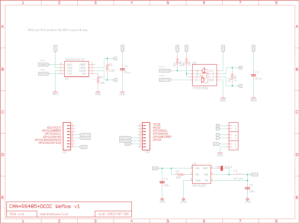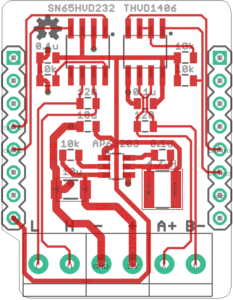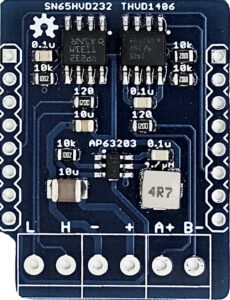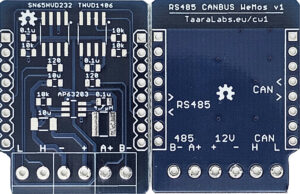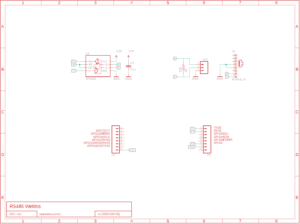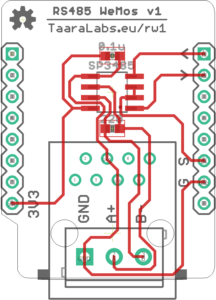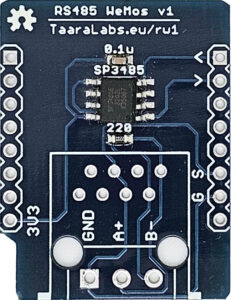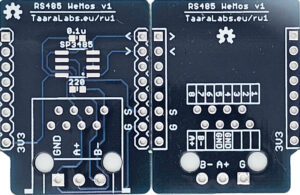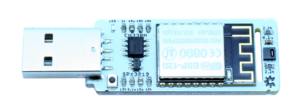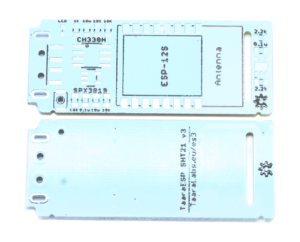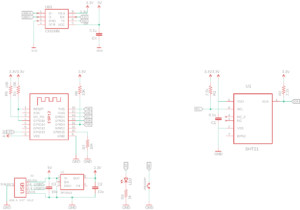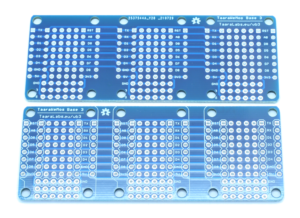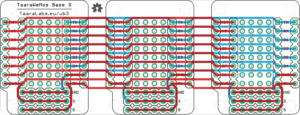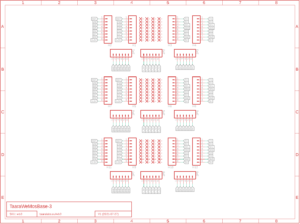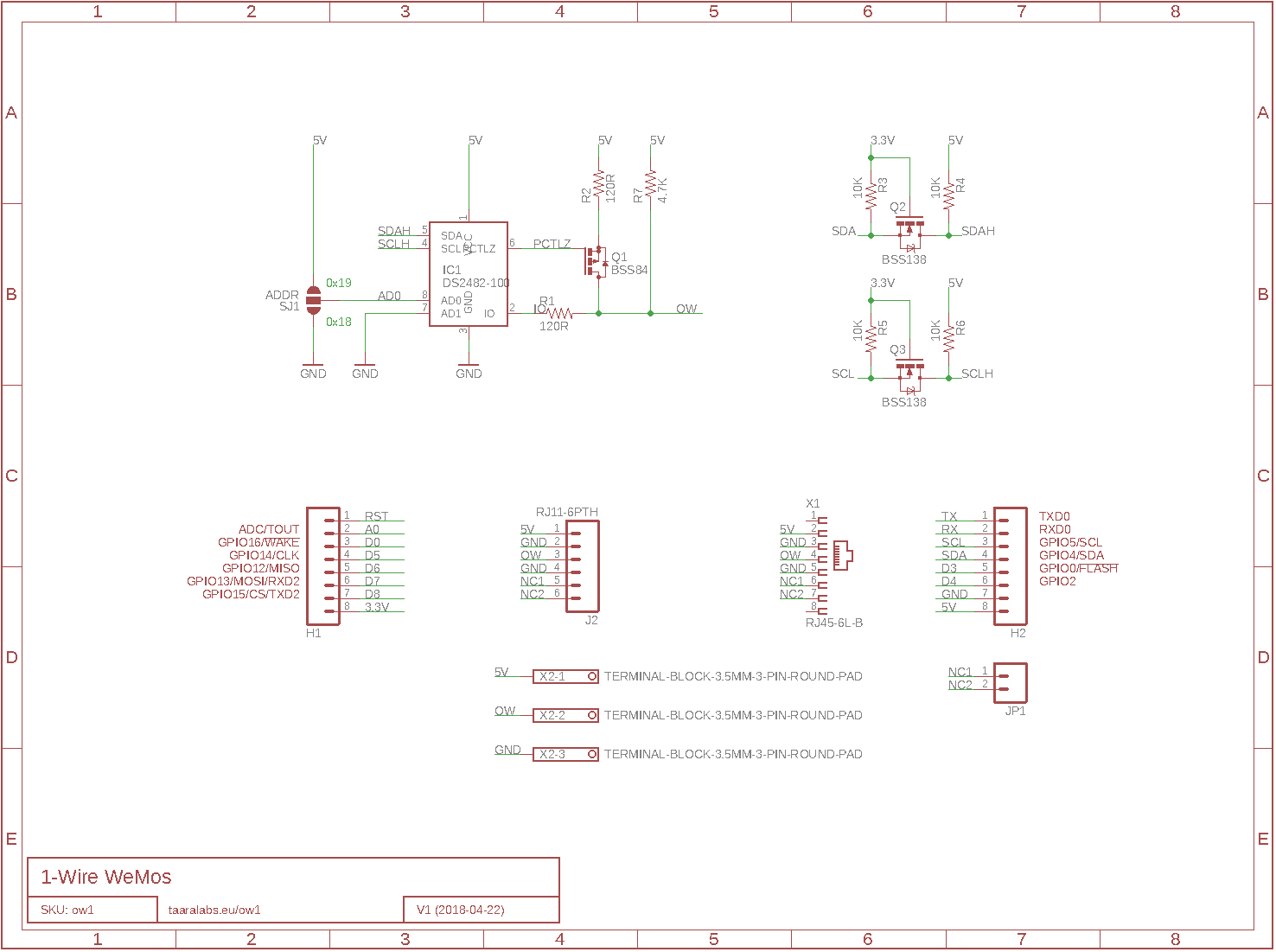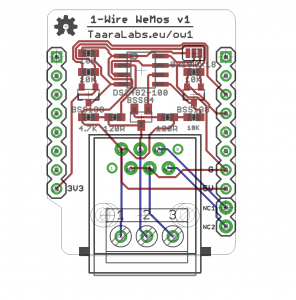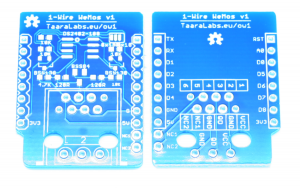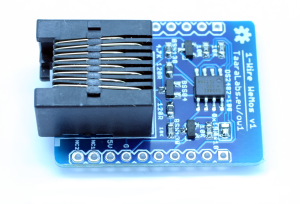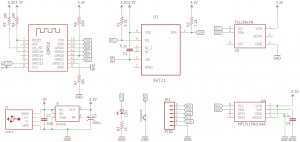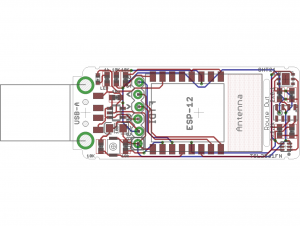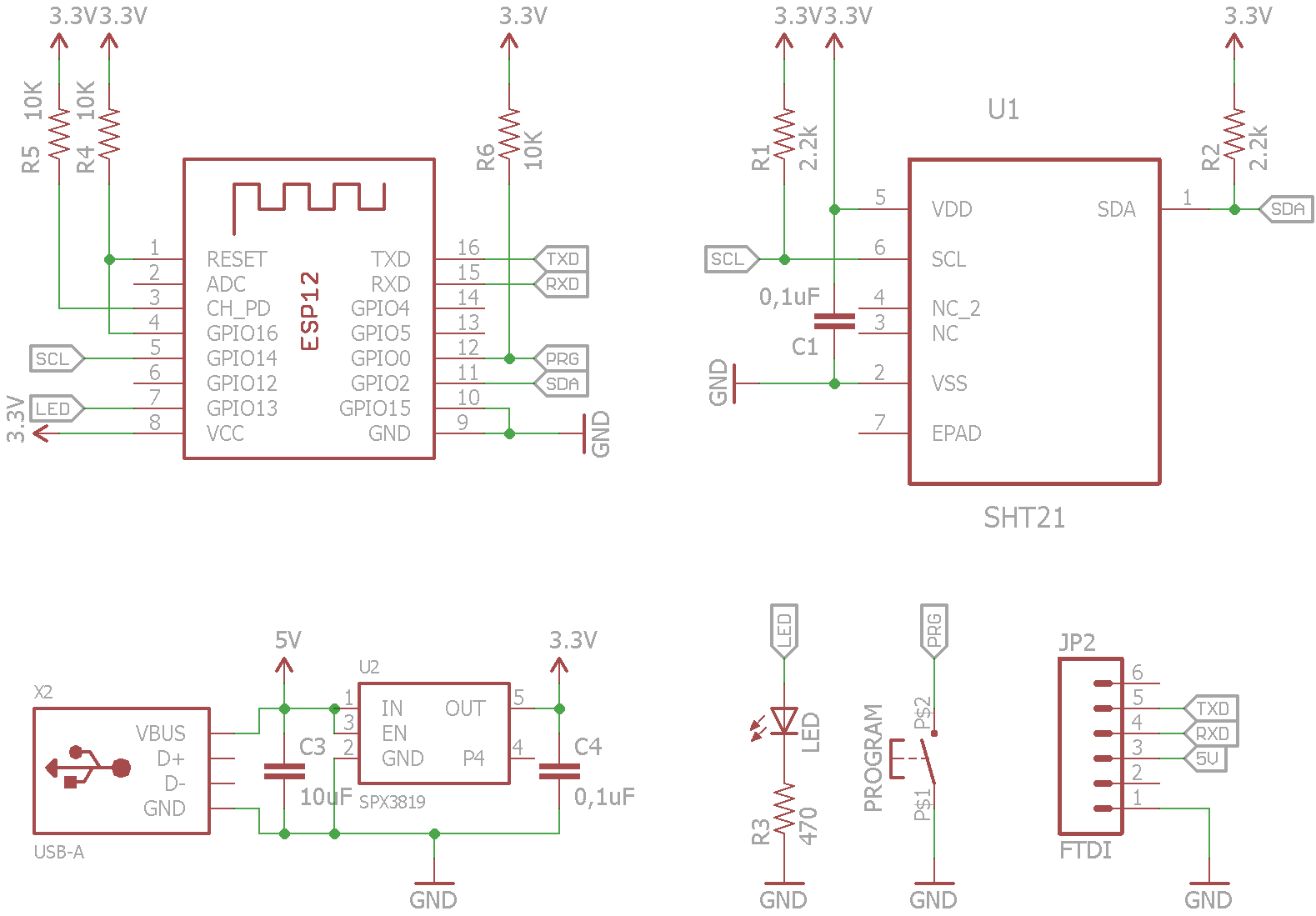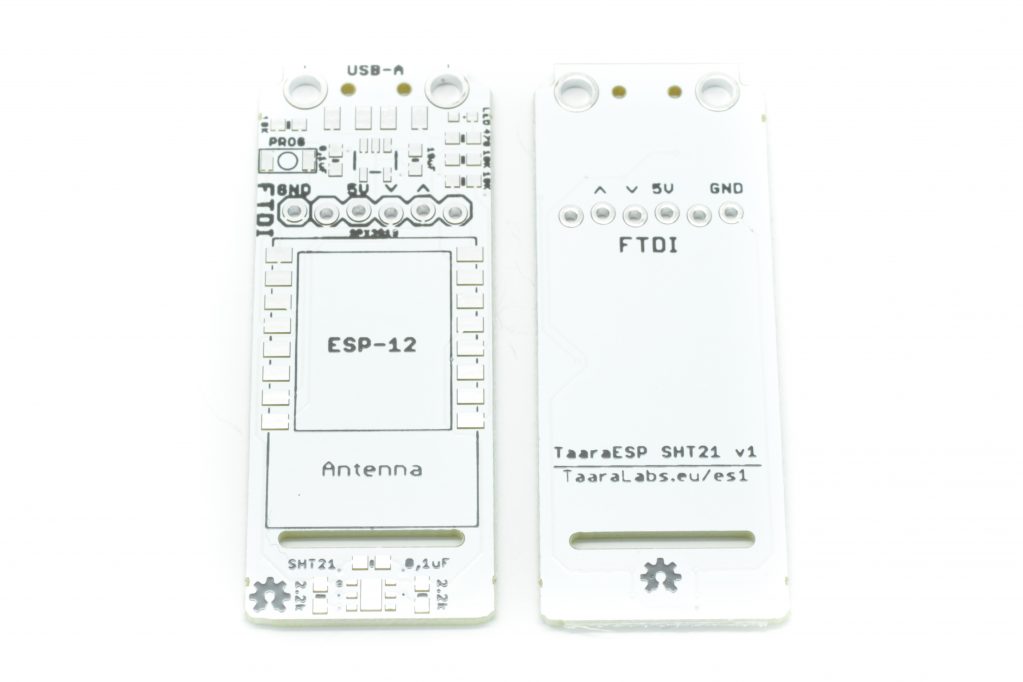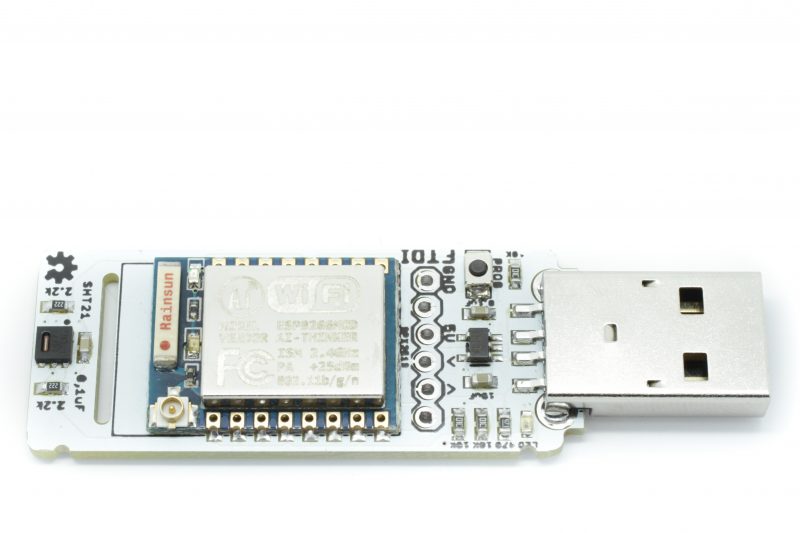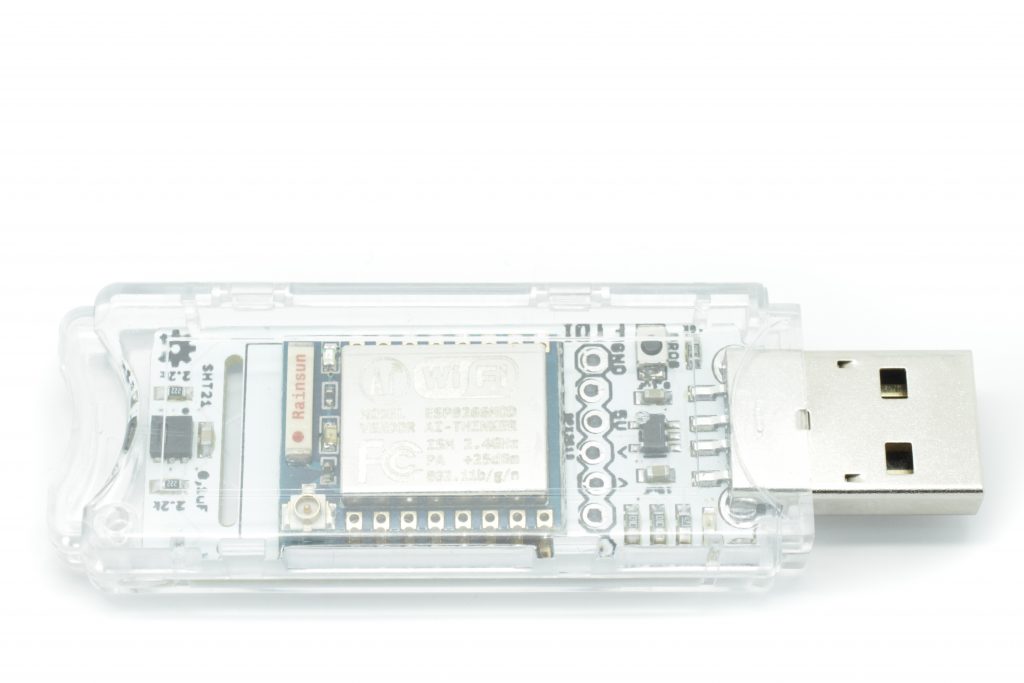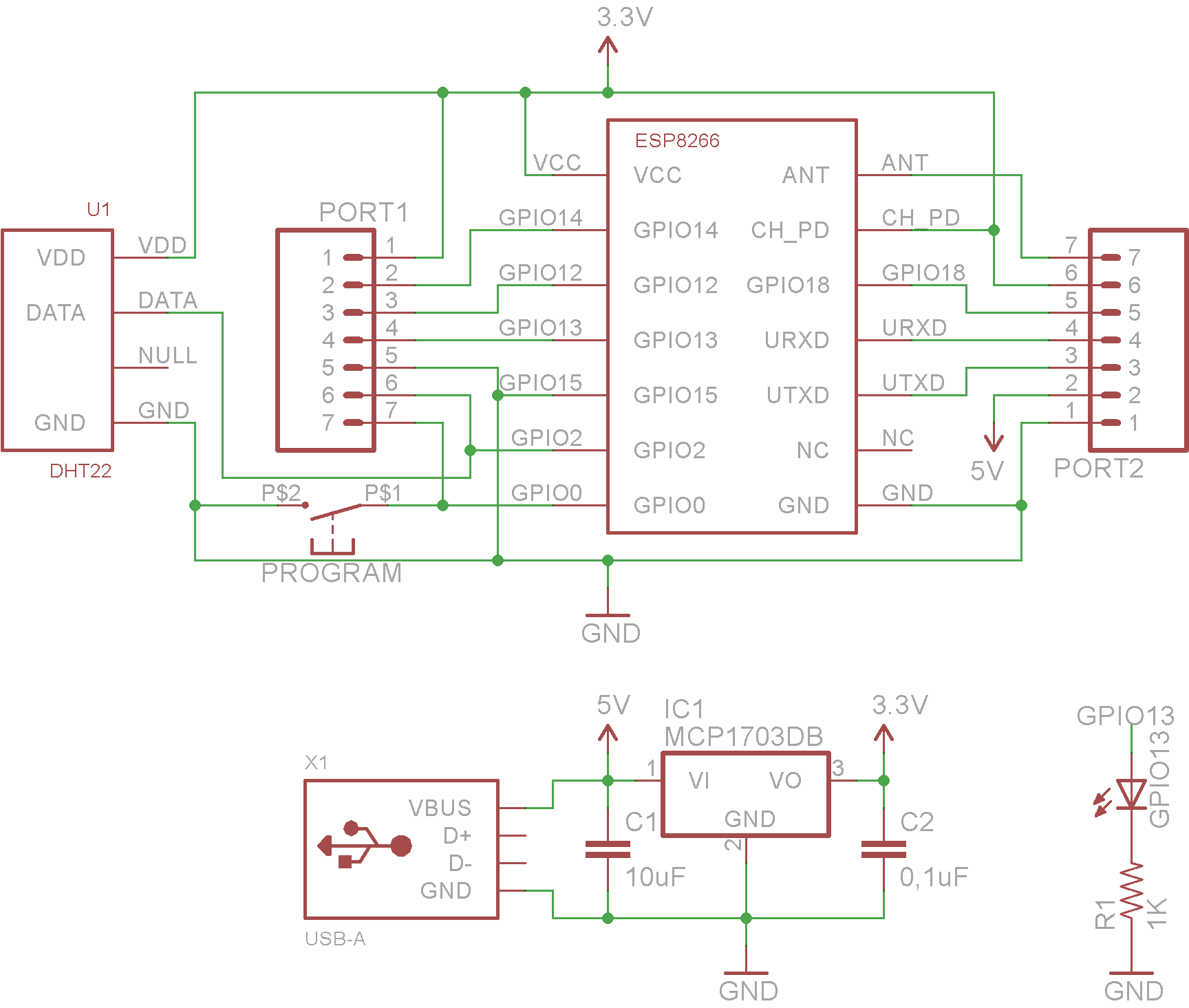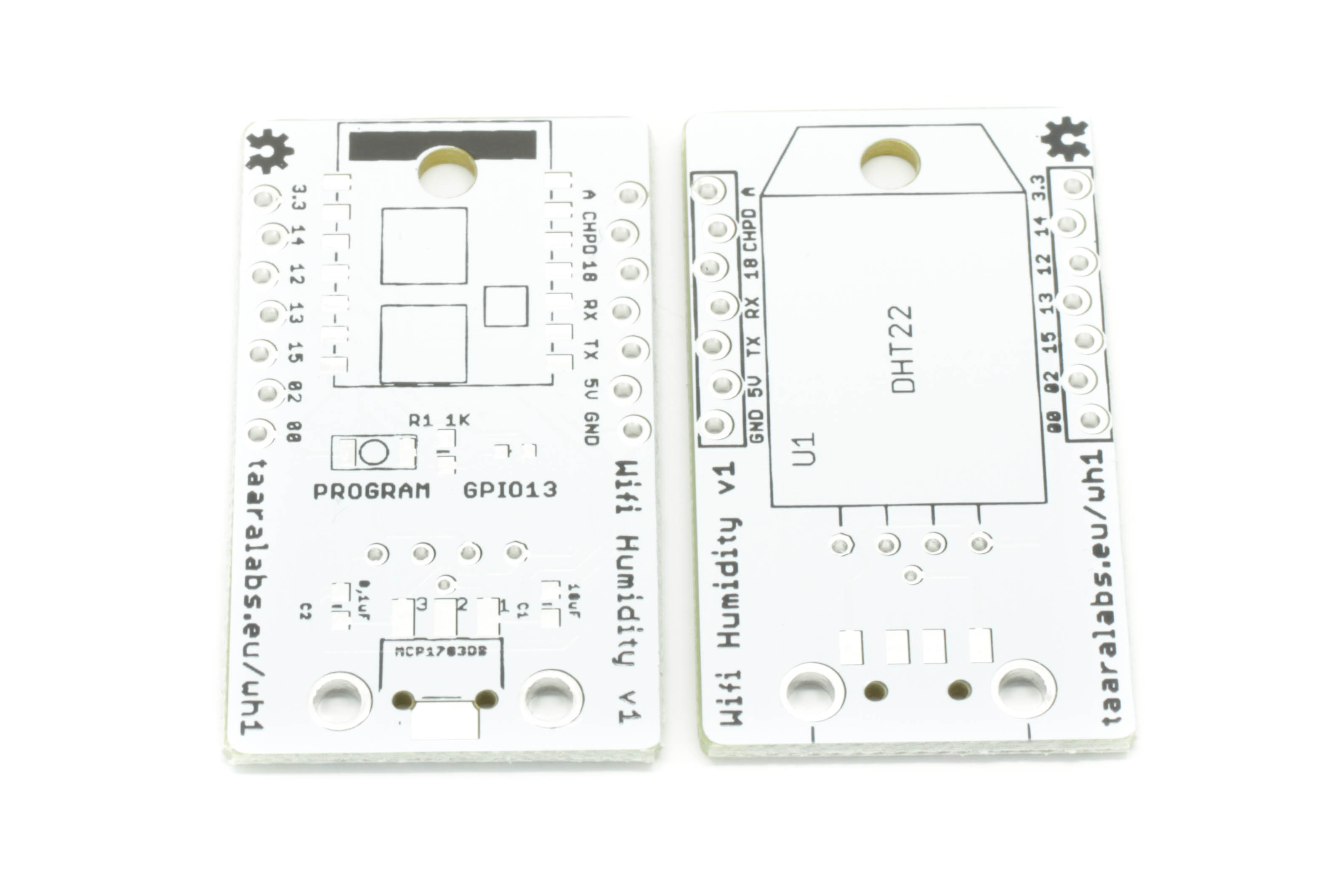RS-485 + CAN bus + DCDC Converter Shield for WeMos D1 Mini32 is a small three-in-one board to fit on top of WeMos D1 Mini32 microcontroller boards:
- RS485 to TTL Serial transceiver with automatic flow control connects UART compatible GPIO pins on the microcontroller.
- CAN bus Transceiver is suitable for 12 V and 24 V systems and it connects to ESP32 integrated CAN controller via GPIO pins.
- DC/DC Converter allows powering the board and the microcontroller with 3.3 V from ~12 V DC source.
This board offers an easy and compact way to connect NMEA-2000 bus and/or one NMEA-0183 (RS-485/RS-422) device to WiFi network on a small boat using NMEA2000-Gateway with ESP32 software getting power from the NMEA-2000 bus or separate ~12 V DC source like 12 V battery.
Features
- 3.5mm screw terminals
- Supply voltage: 12 VDC (3.8V-32V)
- GPIO voltage: 3.3 V
- DC/DC converter: AP63203
- RS-485 transceiver with auto direction control: THVD1406
- RS-485 interface connects to secondary UART on the WeMos Mini ESP32 boards
- CAN bus transceiver: SN65HVD232
- Optical isolation: none
- GPIO pins for WeMos D1 Mini32:
- RS-485
- RX: GPIO16
- TX: GPIO17
- CAN bus
- RX: GPIO19
- TX: GPIO18
- RS-485
Resources
- Design files on GitHub
- ESPHome CAN Bus component
- ESPHome ModBus component
- NMEA2000-Gateway with ESP32 by Andreas Vogel
Buy
- Bare PCB: 3€
- Pre-assembled: 21€
- Pre-assembled with terminals: 26€
- Schematic
- Board Layout
- Pre-assembled
- PCB

